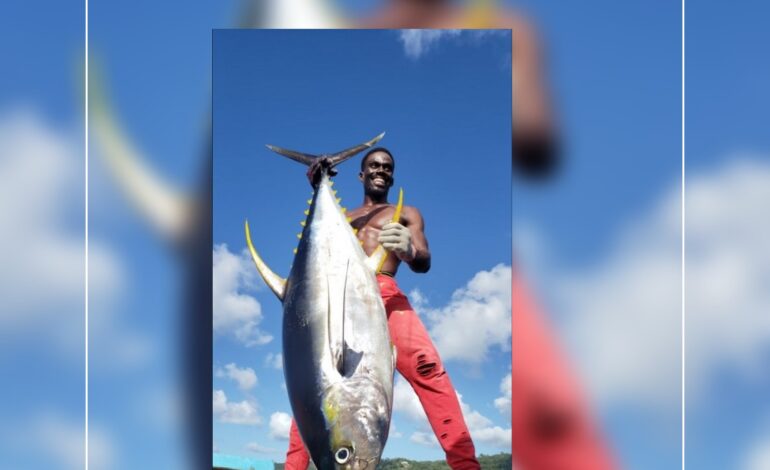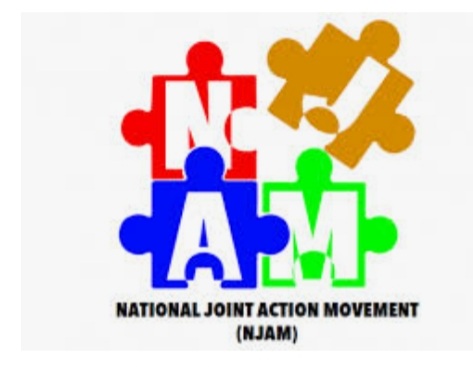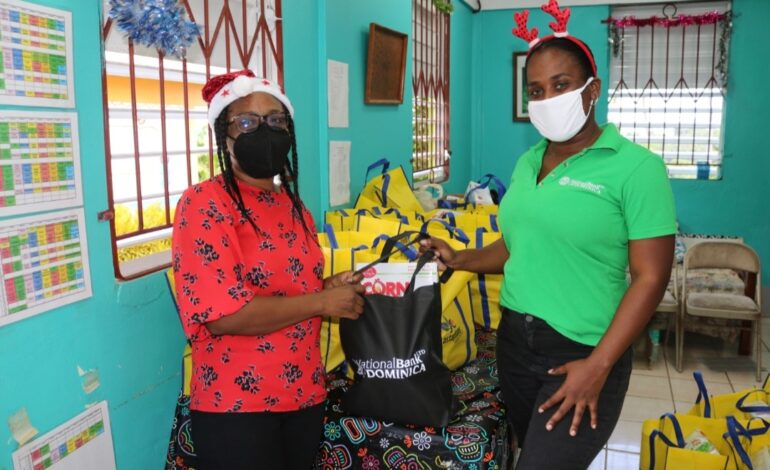
January 3, 2022 – Bridgetown, Barbados – Tuna and tuna-like fishes, most notably the yellowfin and Atlantic sailfish make up about 70 percent of the reported catches in Grenada. With an estimated 2 550 tonnes of fish caught annually, fisheries play an important role in the Grenadian economy, providing employment and income, food and food security, while also being a major source of foreign exchange.
As a mainstay of the economy, fish is a key feature of local cuisine and diet. The fishing sector is predominantly small-scale commercial, supplying local markets and consumers with fresh fish. Furthermore, catch from the fishing vessels contributes to the export market.
As an important resource for Grenadians for both food security and export earnings, the sustainability of the tuna value chain is critical. The most recent assessment by the International Commission for the Conservation of Atlantic Tunas (ICCAT) indicates that Yellowfin Tuna (YFT) is not overfished although it was thought that overfishing was occurring. However, despite the fact that overfishing was not declared there are still major issues with the stock and country-level quotas are still possible within the next one to two years. This challenge is affecting fisheries by decreasing production, and along with the effects of climate change (including changes in sea surface temperature and rising sea levels), could have tremendous impacts on the livelihoods of fisherfolk who rely on the sector for nourishment and employment.
A new and sustainable approach
To improve conservation and increase tuna harvest value, FAO and the Ministry of Agriculture, Lands and Forestry in Grenada have implemented activities that centered on the sustainable improvement of the tuna value chain. This new approach funded by the Global Environment Facility (GEF) and the World Bank was developed based on the Fishery Performance Indicator Development Model (FPI-DEV), which takes social, environmental and economic perspectives into account.
This model was used to design a financial and conservation strategy that was entirely built on the realities and experiences of fishers and fisherfolk as well as the government, and clearly defined roles, investment potential and capital needs of the various stakeholders.
A business model was subsequently developed to provide monetary incentives for a private sector enterprise, fisherfolk organizations and the government to invest in technology proven to improve conservation while improving value along the tuna value chain. This public-private partnership approach to fisheries development brought all stakeholders to the table, for a holistic look at what was needed to reduce by-catch, and increasing tuna harvest values, and providing support for capital investments. The tuna fishery has now entered a Fishery Improvement Project (FIP) to achieve Marine Stewardship Council certification. This allows access to higher-end markets and a workplan to achieve improved sustainability for the sector.
Thanks to this initiative, fisherfolk directly benefit from an increase in sustainability standards and added value in the supply chain.
The public-private partnership is a partnership with One Skip Development (an innovative fishery development firm with long-term experience) and two local fisher associations – the Grenville and Gouyave Fisher Associations – with enhanced capacities to build, vet, and implement a triple bottom line approach to fisheries development in Grenada.
These changes helped to streamline both the export and the local supply chains, by moving from headed and gutted tuna to the commercialization of tuna loins for export. As a result the local fisherfolk, the fisherfolk organizations, and the for-profit company benefit. The changes made are expected to increase revenues from tuna fisheries in Grenada by over USD 1.5 million per year.
A successful public-private partnership
To support the sustainability of the value chain, an underutilized, government-owned processing plant is being re-developed, taking into consideration food safety and enhanced technology to reach full supply chain traceability. The Grenville and Gouyave Fisher Associations have become part of its ownership structure, and are managing the rehabilitated processing facility, while being provided with training in more sustainable fishing techniques and on how to operate a high-standard processing plant.
In addition, with FAO’s support, the data collection and traceability system of the tuna chain will be improved, including the ability to collect data in real-time. This will help to build new data and information systems, and allow for the government to supply data to the Regional Fisheries Management Organization, and to shift focus from data collection to data analysis, as this will be a key change in helping to monitor the sustainability of the fishery, monitor impacts of the chain over time, and for the key players in the sector to make more informed decisions.
Grenada’s public-private partnership is the first FIP for tuna in the Atlantic, showing a remarkable commitment to fishery sustainability in the Caribbean, and it is an ideal example of how bringing together multiple stakeholders can improve the social, economic and environmental outcomes of people while conserving marine life.
For more information:
Iris Monnereau
FAO Regional Project Coordinator
FAO Subregional Office for the Caribbean
Email: Iris.Monnereau@fao.org
Marquita Sugrim
FAO National Communications Consultant
FAO Subregional Office for the Caribbean
E-mail: marquitajuanne.sugrim@fao.org



